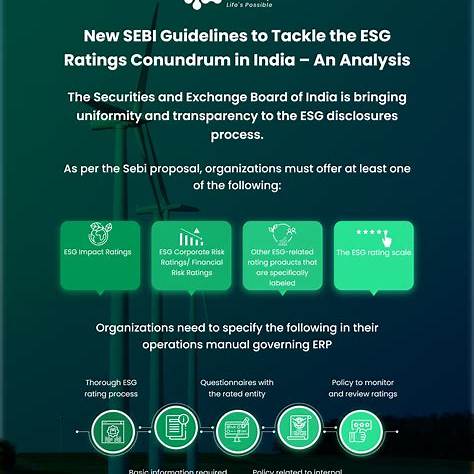7 May – In a significant regulatory update that strengthens the ESG (Environmental, Social, Governance) reporting landscape, the Securities and Exchange Board of India (SEBI) has issued new guidelines governing the withdrawal of ESG ratings. This development marks an important step in ensuring transparency, consistency, and investor protection in India’s sustainable finance sector.
According to SEBI’s new rules, ESG rating providers can only withdraw a rating if they have maintained it for a minimum of three years or for at least half the duration since it was first issued. Furthermore, they must provide a clear justification for the withdrawal and notify stakeholders in advance to avoid misleading the investing public.
This move comes as ESG investing gains momentum in India, with institutional and retail investors increasingly relying on ESG scores to evaluate corporate behavior and sustainability risks. However, with no standardized global methodology, ESG ratings often differ between agencies, creating confusion and undermining confidence.
SEBI’s proactive stance helps address the problem of greenwashing, where companies make exaggerated or misleading ESG claims to appear more sustainable than they are. By implementing stricter rules, SEBI reinforces the principle that ESG ratings must be grounded in verifiable, objective data, and not used for marketing or reputation management.
The regulation also mirrors similar actions by international bodies, such as the EU’s SFDR (Sustainable Finance Disclosure Regulation) and the ISSB’s global sustainability disclosure standards. This alignment positions India as a serious player in global sustainable finance, encouraging better ESG performance and data integrity across sectors.
For Indian corporates, the message is clear: ESG disclosures must now be robust, continuous, and traceable. The onus lies not just on rating agencies, but also on companies to provide credible data, improve governance, and uphold environmental and social commitments.
As India ramps up climate commitments and green finance initiatives, SEBI’s rule reinforces investor confidence and encourages responsible growth.





